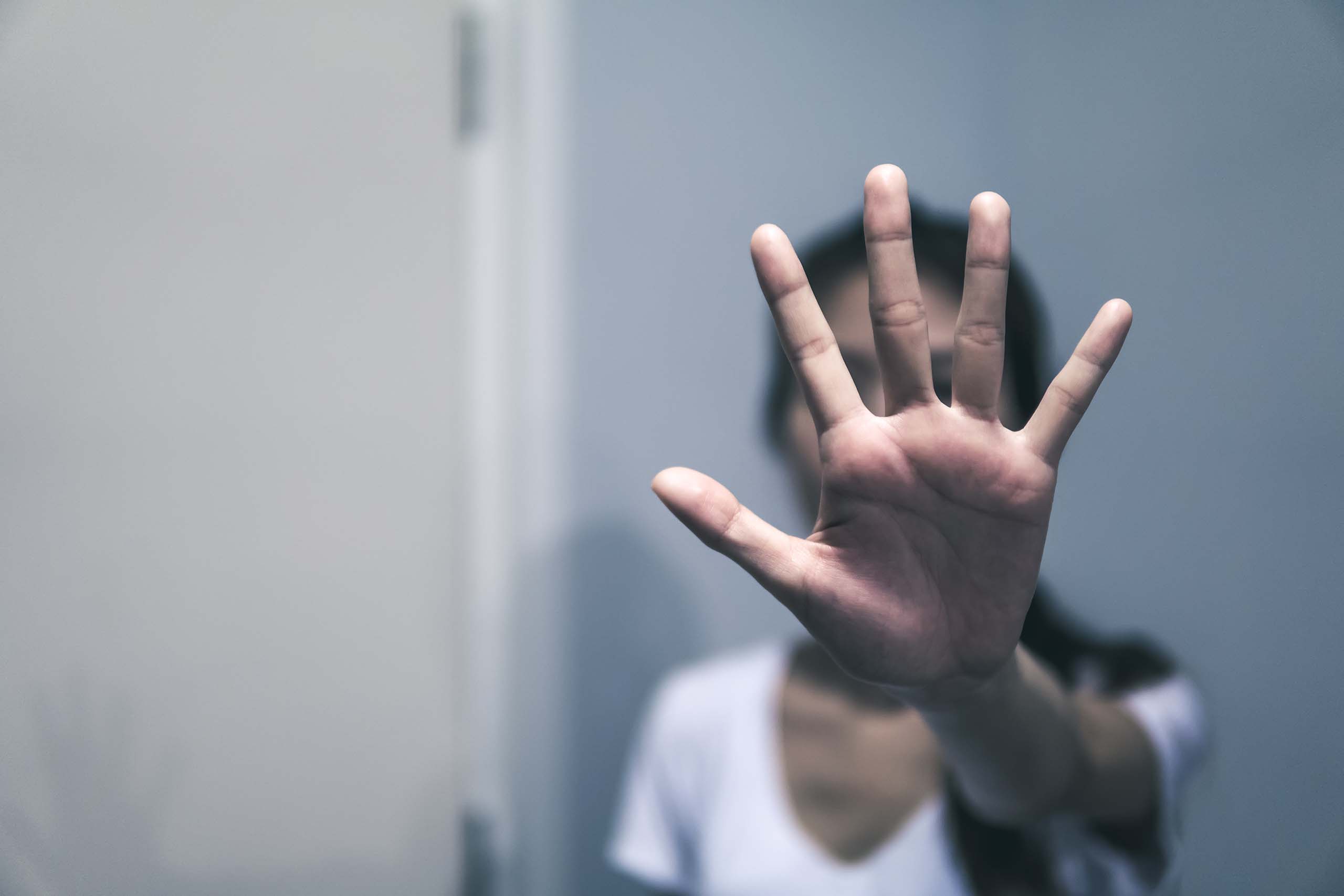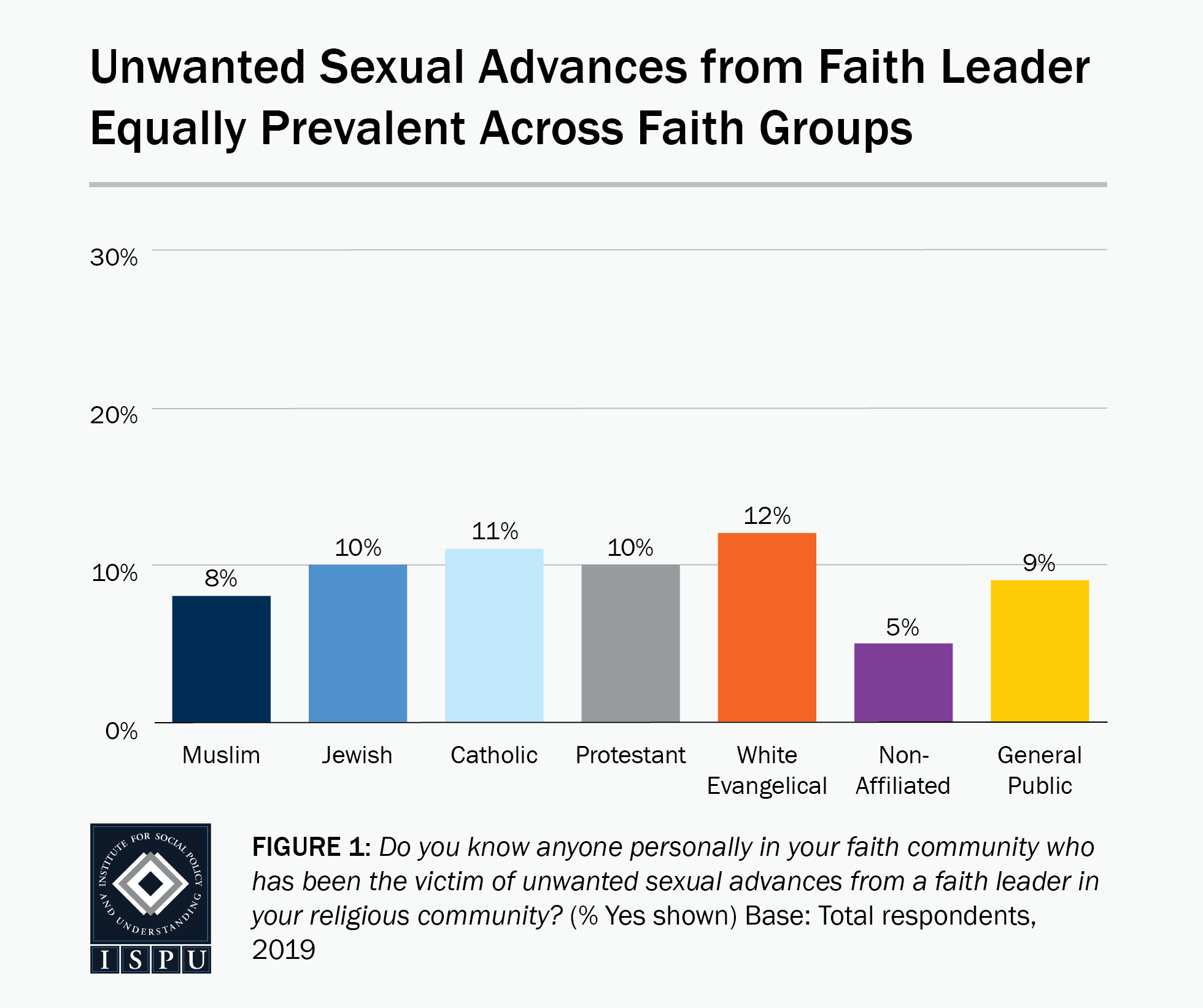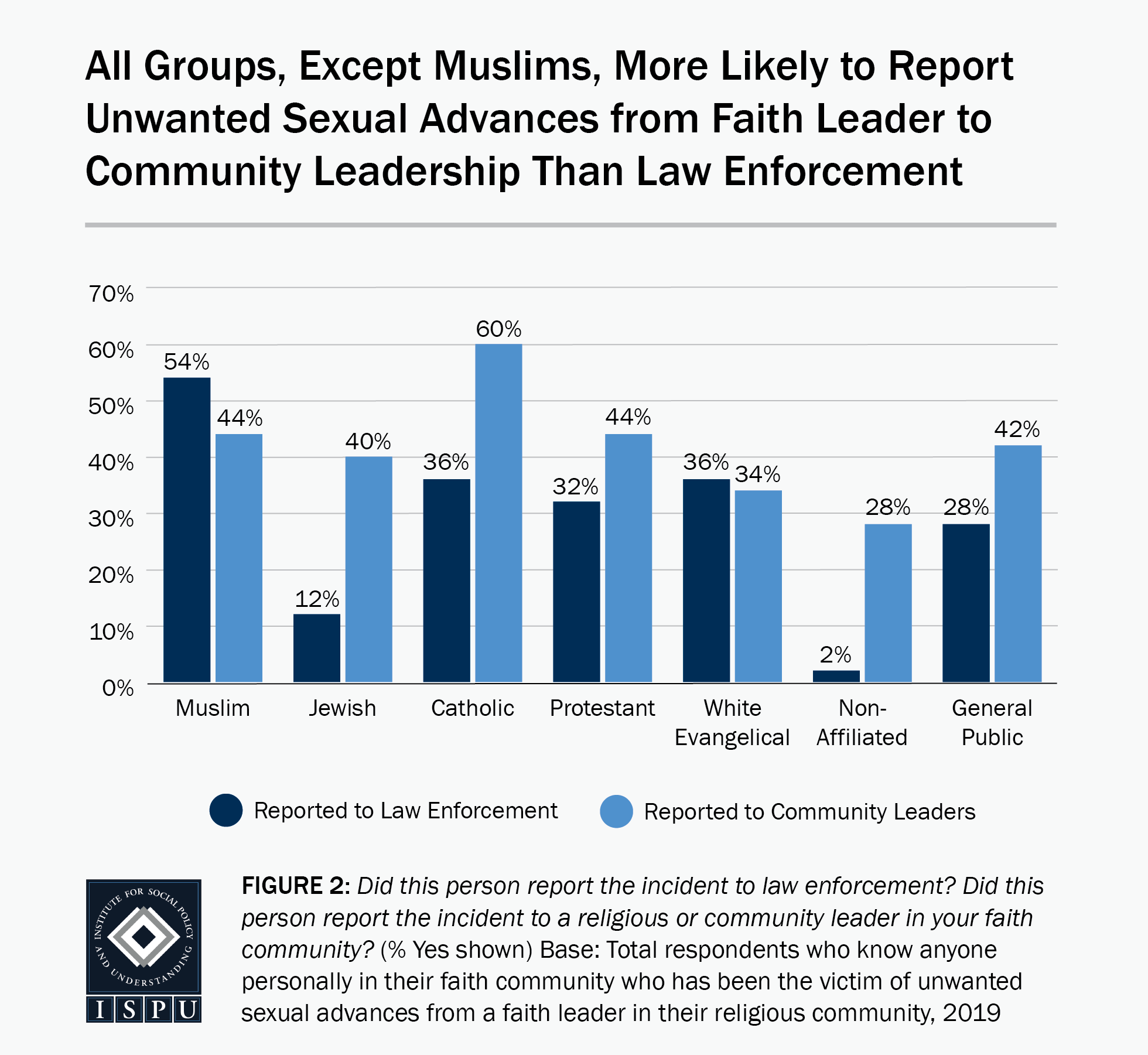
Unwanted Sexual Advances from Faith Leaders Are Equally Prevalent Across Faith Groups
OCTOBER 22, 2019 | BY DALIA MOGAHED AND AZKA MAHMOOD
DOWNLOADS
MORE ANALYSES
Not Immune: Some Muslims in America Internalize Islamophobia
Muslims Profess More Private Religious Devotion, Less Public Religious Assertiveness
The Majority of Muslims Believe Poverty Is the Result of Bad Circumstances, Not Bad Character
To Have and to Hold, Part Two: Interracial Marriage among American Muslims

Unwanted Sexual Advances from Faith Leaders Are Equally Prevalent Across Faith Groups
OCTOBER 22, 2019 | BY DALIA MOGAHED AND AZKA MAHMOOD
Following a year where sexual violence dominated the news due to the continuing traction of the #MeToo movement and the Brett Kavanaugh hearings for the United States Supreme Court, ISPU’s 2019 American Muslim Poll takes a closer look at how communities address unwanted sexual advances within their ranks.
We find that though unwanted sexual advances from a faith leader are equally prevalent across communities, Muslims are one of the most likely groups to report incidents to law enforcement. Our data show that roughly 10% of all faith groups say they personally know someone who experienced unwanted sexual advances from a faith leader in their community (Figure 1). Within faith groups, men are as likely as women to report knowing someone in their faith community who has experienced unwanted sexual advances.
Although Muslims are no more likely than anyone else to know a person who experienced unwanted sexual advances from a faith leader, they are among the most likely to say this incident was reported to law enforcement (54% vs. 2–36% among other groups) (Figure 2). Specifically, Muslims were more likely than Jews (12%), the non-affiliated (2%), and the general public (28%) to report these cases to law enforcement.
All faith groups surveyed were equally likely to say the person who experienced unwanted sexual advances from a faith leader in their community reported it to another community or faith leader. However, in every group except Muslims, victims are more likely to have reported the incident internally to their faith community leadership than to law enforcement. Though Muslims are as likely as other groups to have also reported the incident to community leadership, unlike other groups, they are slightly more likely (54% vs. 44%) to have reported the incident to law enforcement (Figure 2).
This finding seems to negate the notion held by some people who are not Muslim of the Muslim community as an exceptionally insular group reluctant to involve law enforcement in their internal affairs, perhaps due to the sizeable immigrant population. In fact, these data suggest the opposite.
There are those who argue that inappropriate sexual interactions between faith leaders and members of their congregation are worse in the Muslim community, while others deny the problem exists at all. This research shows that both of these points of view are inconsistent with the evidence. This serious issue must neither be used to pathologize Muslim communities nor should it be ignored or denied. Instead communities must come together to protect their most vulnerable from sexual and spiritual abuse in all its forms.
This piece is an excerpt from American Muslim Poll 2019: Predicting and Preventing Islamophobia.

Dalia Mogahed is the Director of Research at the Institute for Social Policy and Understanding, where she leads the organization’s pioneering research and thought leadership programs on American Muslims. Mogahed is the co-author of American Muslim Poll 2019: Predicting and Preventing Islamophobia. Learn more about Dalia→

Azka Mahmood is an ISPU Educator who has organized and facilitated educational workshops for journalists and educators across the U.S. Mahmood is the co-author of American Muslim Poll 2019: Predicting and Preventing Islamophobia.



